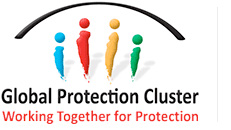PROTECTION IN NATURAL DISASTERS
The impact of natural hazards is most acutely felt by individuals and communities with pre-existing vulnerabilities which often are characterized by the limited enjoyment of rights. Many of the most important protection challenges in disaster situations are long-standing protection and human rights concerns which are brought to light and further exacerbated by the emergency. Disaster situations cause and worsen protection risks such as sexual and gender-based violence; family separation; child trafficking; unequal access to assistance; discrimination in aid provision; enforced relocation; loss of personal documentation; land disputes and issues related to land and property rights.
As in situations of complex emergencies, natural disasters often result in internal displacement of populations. The State has the main role and responsibility to protect and assist affected populations. When national capacities become overwhelmed by the emergency and at the government request, the international community can provide support with/and humanitarian assistance. For the protection sector this includes notably registration and documentation of vulnerable populations as well as targeted support to groups with specific needs.
At country level, the humanitarian protection leadership role in natural disaster situations is currently decided on a case-by-case basis by UNHCR, the Office of the UN High Commissioner for Human Rights (OHCHR) and UNICEF, the three protection mandated agencies, under the leadership of the Humanitarian Coordinator/Resident Coordinator. The decision on leadership is dependent on the in-country capacity of each agency to fulfil the role and responsibilities of protection cluster lead agency for the specific emergency.
